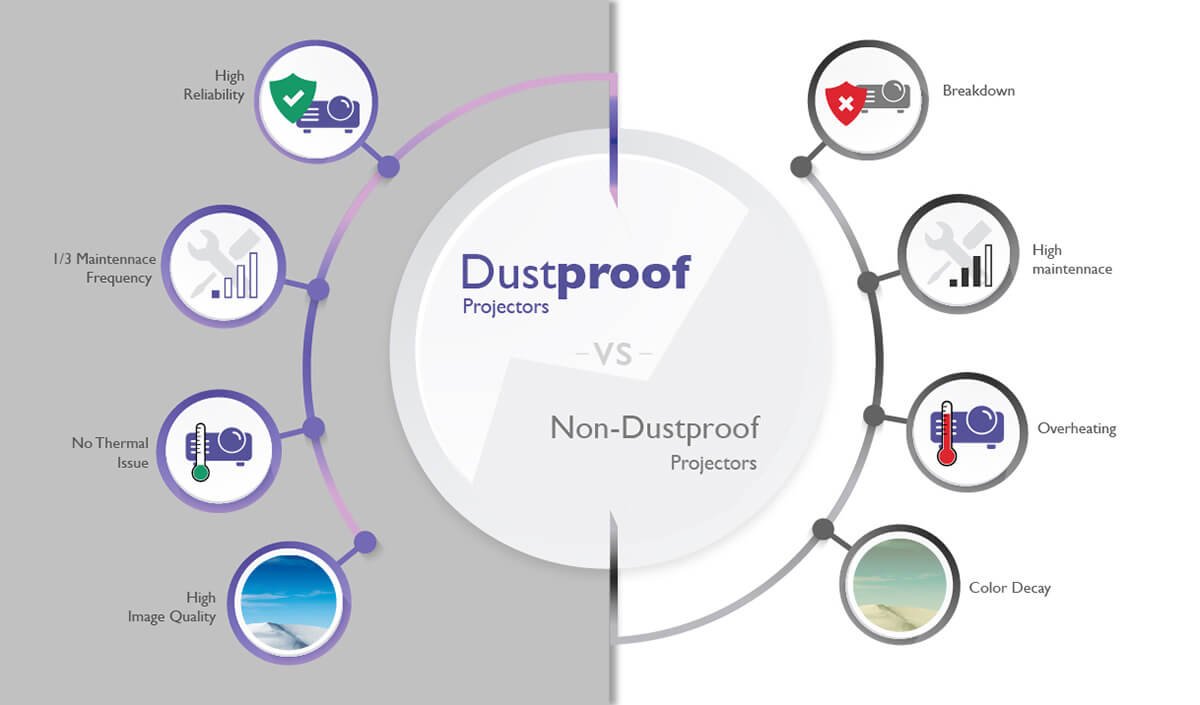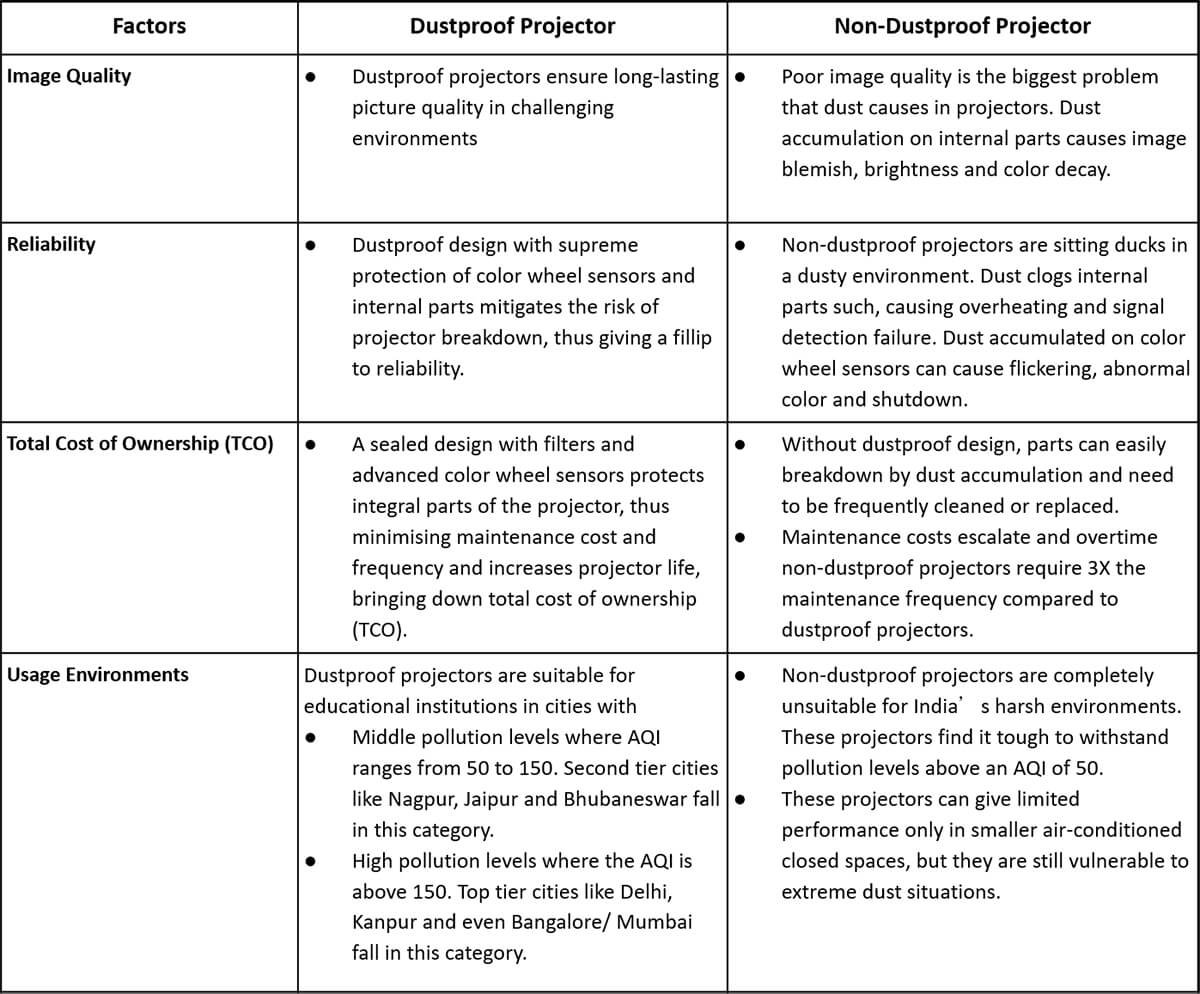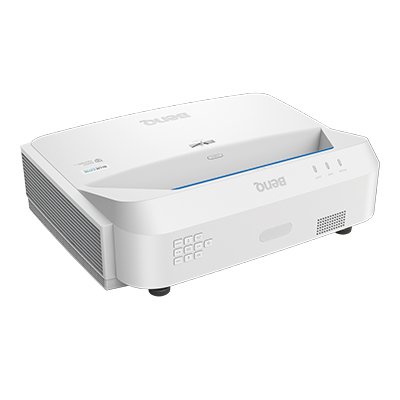Why Your Institution Needs to Make the Switch from non-Dustproof to Dustproof Projectors
- BenQ
- 2018-09-03
The Times of India described Delhi’s (India’s capital) pollution levels as “apocalyptic”. In addition to all the man-made reasons, natural causes are also a contributing factor. In the summer of 2018, North India has seen an unprecedented rise in dust-storms.
Another article on Mongabay, a well-known source of environmental news reporting and analysis, said that intense thunderstorms and dust storms are likely to increase more in the coming few years. Population in the affected areas have taken precautions in the form of PM2.5 and PM10 masks. Face masks are a regular sight during ‘big’ spells of pollution and dust.
Humans are the not the only ones at risk. Electronic equipment is extremely vulnerable to dust, particularly non-dustproof classroom projectors. Dust causes projector breakdown and lowers image quality, bringing down the intended ‘learning impact’. To empower education market participants, projector companies like BenQ have introduced dustproof classroom projectors that guarantee world-class learning quality even in the harshest environments.
Dustproof classroom projectors are in a different league as compared to non-dustproof projectors. The difference between the two isn’t just in terms of optimal reliability and performance. Differences also exist in the engineering design, TCO and usage environments. The below table provides a point-to-point comparison between non-dustproof and dustproof classroom projectors.


With increasing investments in projectors and interactive media equipment, especially in dust-prone and polluted countries like India, it is necessary to factor in all the above mentioned points. Today’s educational needs demand projectors to deliver maximum performance with least TCO. For a little higher upfront investment, dustproof classroom projectors help educational institutions deliver on their promise of high quality education. Running costs are minimal to negligible. Nevertheless, budget compulsions will still drive higher education leaders to opt for cheaper non-dustproof classroom projectors. This comparison will at least ensure that they are in the know.
How has your educational institute’s investment into dustproof classroom projectors worked out compared to non-dustproof ones?
